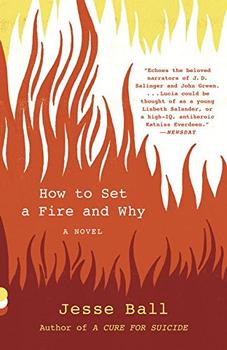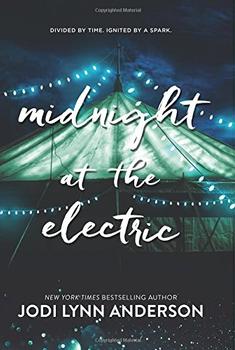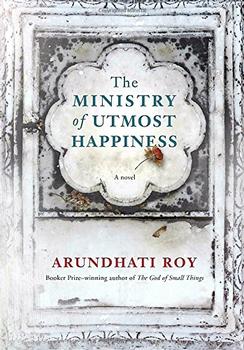 In How to Set a Fire and Why, Lucia claims to not remember exactly what occurred during an argument with her aunt's landlord, leaving her exact reasoning and motivation somewhat mysterious. In writing Lucia as an unreliable narrator, Jesse Ball draws from an established tradition.
In How to Set a Fire and Why, Lucia claims to not remember exactly what occurred during an argument with her aunt's landlord, leaving her exact reasoning and motivation somewhat mysterious. In writing Lucia as an unreliable narrator, Jesse Ball draws from an established tradition.
An unreliable narrator lies, expresses uncertainty or bias, or seems to have a misunderstanding of situations that occurred. The author may employ an unreliable narrator to intentionally mislead the reader or as a means of characterization. Part of the pleasure in encountering such a narrator is parsing out what is true and what is not. Teen and young adult narrators are some of the most obvious and well-known examples of the trope, and this makes logical sense. Adolescence is often a time of conflict, teenagers vacillate between uncertainty and confidence in their beliefs as they try to forge a concrete identity for themselves. They are often dishonest, caught as they are between childhood and adulthood, they push the limits, break the rules and lie to avoid punishment.
 In Midnight at the Electric, it is the year 2065, and teenager Adri is part of a carefully selected group departing Earth forever to live on Mars. Although the story takes place less than 50 years from now, massive planetary destruction has already taken place. As Adri puts it early on, "there's no Miami and hardly any Bangladesh and no polar bears…and they're paying billions of dollars to start a colony on Mars because humans need an exit strategy."
In Midnight at the Electric, it is the year 2065, and teenager Adri is part of a carefully selected group departing Earth forever to live on Mars. Although the story takes place less than 50 years from now, massive planetary destruction has already taken place. As Adri puts it early on, "there's no Miami and hardly any Bangladesh and no polar bears…and they're paying billions of dollars to start a colony on Mars because humans need an exit strategy."
Considered by some to be a sub-genre of science-fiction, and by others to be an entirely new genre, climate-fiction highlights climate change and its potential ramifications. Although books exploring man-made climate change date back to the '70s, it was only in 2007 that journalist Dan Bloom coined the term "cli-fi." Now, only one decade later, dozens of books fall under the definition of climate fiction, and the genre has seen an explosion in popularity.
 The Kashmir dispute between India and Pakistan occupies center stage in Arundhati Roy's The Ministry of Utmost Happiness. For readers unfamiliar with the dispute here is some background (this piece first ran as the "beyond the book" article for Roy's long awaited book):
The Kashmir dispute between India and Pakistan occupies center stage in Arundhati Roy's The Ministry of Utmost Happiness. For readers unfamiliar with the dispute here is some background (this piece first ran as the "beyond the book" article for Roy's long awaited book):
The conflict in Kashmir traces its roots back to the partition of India and Pakistan (see our Beyond the Book article for An Unrestored Woman).
When the British left India in 1947, Kashmir was not an Indian state, but was instead one of hundreds of smaller independent princely states. each with their own rulers, who swore loyalty to the British empire. As the British Raj withdrew, these princely states had to make the complicated decision as to whether to become a part of either India or Pakistan, or become independent countries. Most that were within contemporary India's borders chose to become a sovereign part of the country.